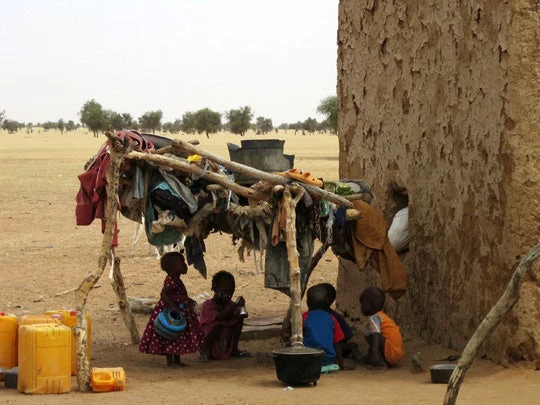Mauritania, like its Sahelian neighbors, is struggling with three problems: drought, high food prices and security threats. All of these threats are driven in some form by global climate change to the point where they are threatening economic growth, stability and peace.
The crisis point was reached in 2011, when Mauritania was struck with a severe drought that cost the country over one-third of its cereal harvest. And because Mauritania is dependent on food imports for over two-thirds of its domestic consumption, high international food prices compounded the crisis. Food prices spiked, food availability dropped especially in many rural areas, and the country was on a verge of humanitarian crisis.
This is when Mauritania made an impressive move.
Short-term crisis response
Instead of appealing for food aid, the government launched a comprehensive emergency program funded from the national budget. The program, called Emel (‘hope’ in Arabic), included a broad range of interventions designed to support its vulnerable populations: free food distribution for the very poor, subsidized food for the poor, cereal banks for rural farmers and, essential for a pastoral country, livestock feed to keep herds – and thus, capital – alive.
Emel was a success: food was available, prices stayed down and a crisis was averted.
But success did not come cheap. The Emel program cost 2.6% of GDP, and nearly 9% of total government expenditure in 2012, and is growing into a national behemoth as the consequences of climate change keep justifying continued intervention.
Beyond the heavy fiscal burden, over time, such an emergency program distorts local economic activity and, in the case of large-scale food distribution, undermines domestic food markets and production. Worst of all, while averting the immediate crisis in the short-term, an emergency program does not tackle the root causes of poverty or vulnerability.
On a recent mission, the Mauritanian government was keenly aware of entering an unsustainable cycle: because the emergency program was so successful in protecting vulnerable populations, it has expanded and is growing into a policy on which the government – and the population – relies. The subsidized food shops for example, intended to operate for 6 months in 2011, have doubled in number and are still doing healthy business in 2014.
Long-term resilience
Faced with the choice to continue funneling vast resources into emergency activities that ultimately maintain the status quo, Mauritania chose to develop interventions that could work at the root causes of poverty and reinforce resilience over the longer-term.
Mauritania has been testing cash and voucher programs as alternatives to its emergency food distributions, and is preparing a national registry to target the poorest households for more permanent support. Important resources are also being channeled into sustainable agriculture (with a national goal of doubling arable land by 2017) and pastoralism, one of the country’s economic and cultural foundations. These activities received a boost at the recent conference on pastoralism and its Nouakchott Declaration.
The best way to reduce climate change shocks? Pushing back on poverty
The threats that caused Mauritania to launch a successful national emergency program are now pushing it to develop a comprehensive and large-scale approach to fighting poverty.
With the 2011 drought, Mauritania showed that it was capable of facing a national emergency with vision and skill. In turn, the national emergency program proved that it is long-term investments in the resilience of the Mauritanian people, not emergency programs, which are the correct response to climate change.
But the real conclusion that has emerged from this experience is perhaps that it is not climate change, but poverty that is the national emergency. If the poor are adequately equipped when a crisis hits, they will be more than capable to adapt and push back themselves.
So perhaps, if ever there was a silver lining to drought in Mauritania and the Sahel, it is to show that fighting poverty is the best response to the many threats posed by climate change.



Join the Conversation